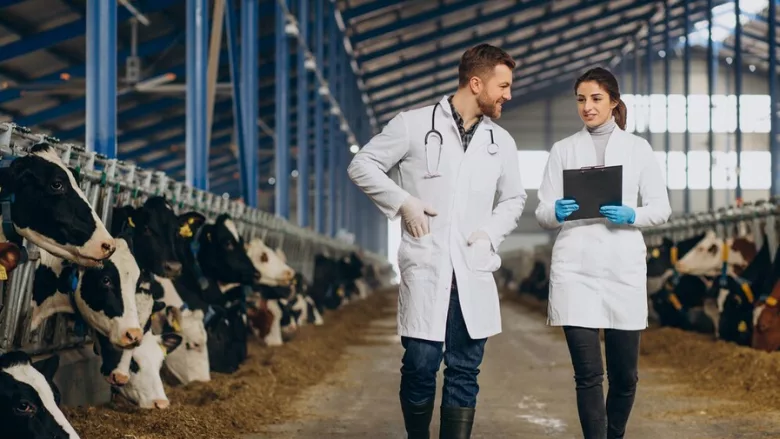Sales of Medically Important Antibiotics for Use in Food-Producing Animals Decreased Slightly in 2023

Image credit: senivpetro via Freepik
Domestic sales of medically important antibiotics for use in food-producing animals fell by 2 percent in 2023, according to the latest report from the U.S. Food and Drug Administration’s Center for Veterinary Medicine (FDA’s CVM).
To assist FDA in monitoring antimicrobial resistance, as well as to assure the safety and efficacy of drugs used for both humans and food-producing animals, federal regulations require manufacturers of animal antibiotics to submit an annual report to FDA on the amount of each active antimicrobial in drugs sold or distributed for use in food-producing animals.
In 2023, 6.1 million kilograms (kg) of “medically important” antibiotics (determined by FDA based on their utility for treating disease in humans) were sold and distributed for use in food-producing animals, including chicken, turkey, cattle, and swine. This is a 2 percent decrease from the 6.2 million kg sold in 2022.
Notably, between 2015 and 2023, sales decreased by 37 percent—2015 was the year of peak sales. Since 2014, overall sales have decreased by 35 percent.
At the same time, tetracyclines, which represent the largest volume of domestic sales in 2023 (4.1 million kg, or 66 percent of sales) increased by less than 1 percent since 2022. Penicillins, the second-most sold antibiotics (614,619 kg, or 10 percent of sales), decreased by less than 1 percent, followed by macrolides (532,072 kg, or 9 percent of sales), which decreased by 6 percent. Aminoglycoside sales (6 percent of sales) decreased by 5 percent, and lincosamide sales (3 percent of sales) decreased by 18 percent. Cephalosporins and fluoroquinolones each represented less than 1 percent of sales in 2023.
Of the antibiotics sold in 2023, 44 percent and 41 percent were intended for use in swine and cattle, respectively. Only 10 percent were intended for use in turkeys, 2 percent for use in chickens, and 3 percent for other or unknown animal species.
Looking for quick answers on food safety topics?
Try Ask FSM, our new smart AI search tool.
Ask FSM →









